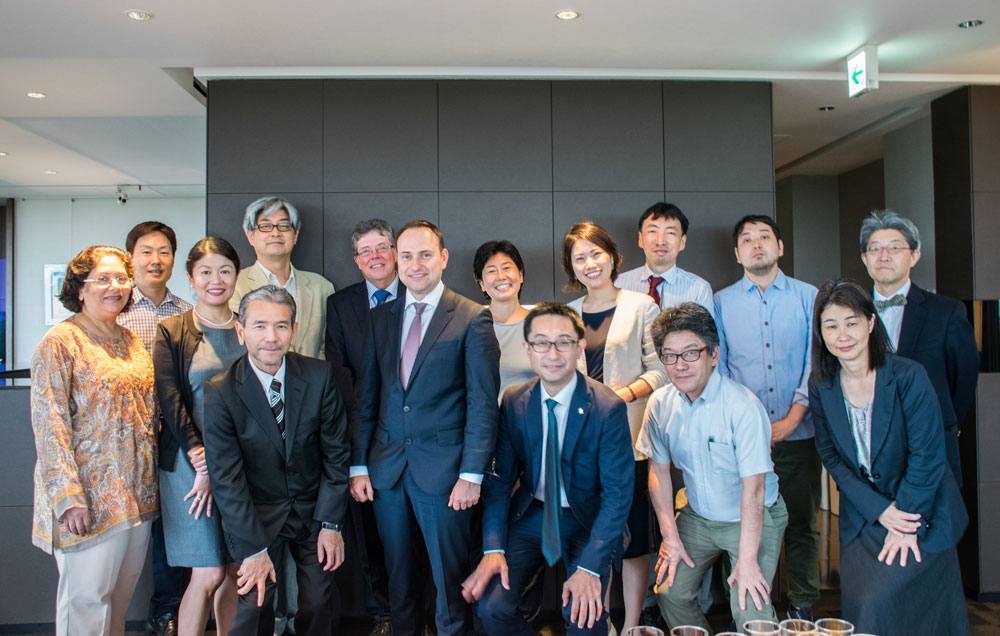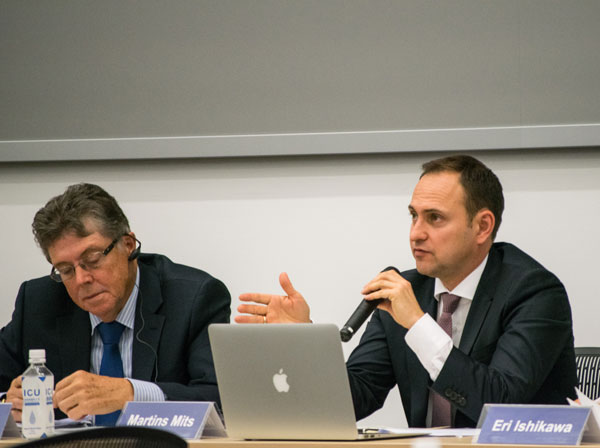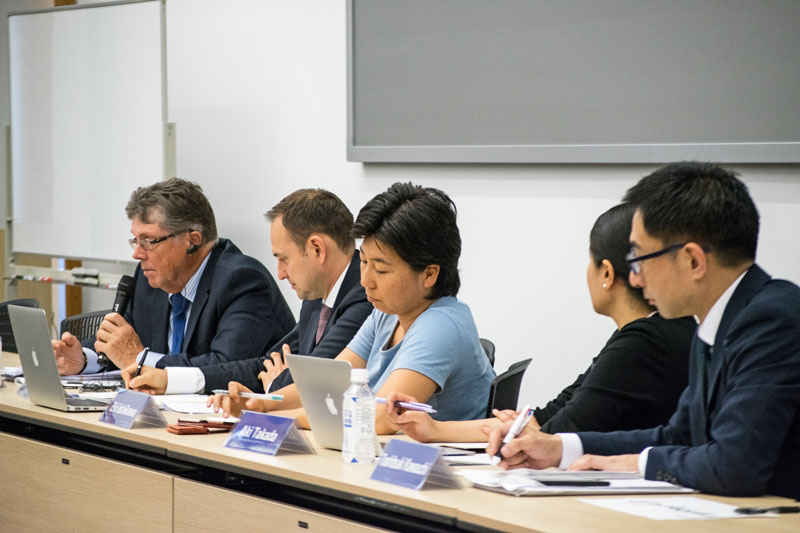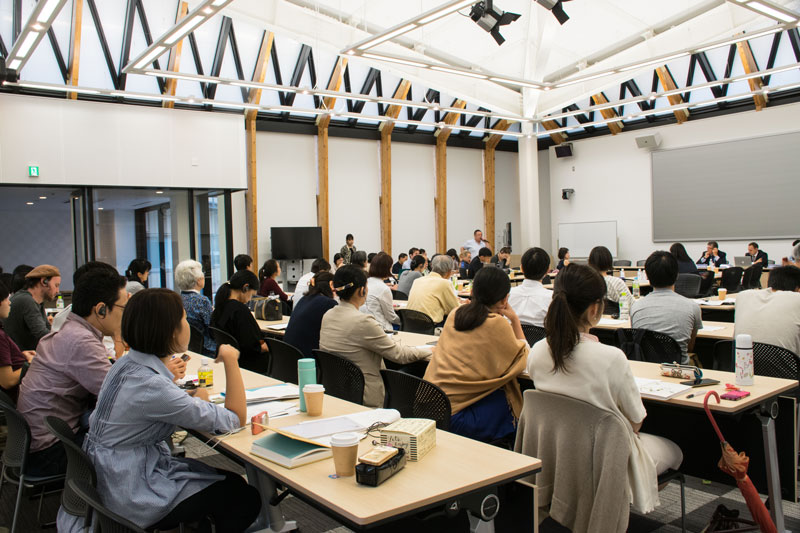International Symposium on “War Refugees in International Law” Held at ICU

On September 23rd, ICU’s Peace Research Institute and the Japan Federation of Bar Associations hosted an international symposium titled “War Refugees in International Law and the Role of Civil Society” at the Togasaki Kiyoshi Memorial Dialogue House. In June, ICU Professor Osamu Arakaki received a JICUF grant of ¥800,000 to organize the event.
After opening remarks by President Junko Hibiya, Professor Arakaki provided background information on how “war refugees” were only recognized as refugees in exceptional cases under the 1951 Refugee Convention, and how sustained efforts had been made to extend international protection to “war refugees”.

In the morning session, two prominent legal experts from overseas were invited to address this issue. In a presentation titled “War Refugees in International Law,” Judge Hugo Storey of the UK Upper Tribunal gave a historical overview of the treatment of “war refugees” under international law, and introduced the changes made by the new UNHCR Guidelines issued in December 2016. These Guidelines seek to ensure that States consistently apply international law when conducting refugee determinations and generally view individuals fleeing armed conflict and violence as possible refugees. While acknowledging the advancement made by these Guidelines, Judge Storey also pointed out some remaining issues and suggested possible solutions.
Next, Judge Martins Mits of the European Court of Human Rights gave a presentation on “Refugees, Armed Conflicts and the European Convention on Human Rights.” Through reference to individual cases, he demonstrated how subsidiary protection through regional treaties such as the European Convention on Human Rights was extended to “war refugees.”
Professor Emiko Nakasaka of Chuo University, who is a specialist of EU law and asylum law, commented on both presentations and a brief discussion with the two presenters ensued.
In the afternoon, the focus of the symposium shifted to the role civil society can play in protecting “war refugees.” Greetings from Professor Toshiaki Sasao, Director of ICU’s Peace Research Institute, was followed by a presentation by Eri Ishikawa, Chair of the Board of the Japan Association for Refugees (JAR). Addressing the question “What Can Civil Society do to Protect Refugees?,” She gave an overview of the Japanese government’s response to refugees since the 1970s, and described how actors in civil society have developed private sponsorship programs to admit refugees.

The final presentation was made by Aki Takada, Director of Communications at JICUF, on “What Can Universities do to Protect Refugees?” She introduced the Syrian Scholars Initiative, a scholarship program for Syrian refugee students co-developed by ICU, JICUF and JAR. Professor Allen Kim commented on the presentations and led a discussion on the role of civil society.
After a short break, Toshitsuki Kawauchi, Deputy Representative of UNHCR Japan, and attorney Ayane Odagawa initiated a panel discussion with the four presenters. Questions such as “How do you define ‘war refugees’?,” “Why are the UNHCR Guidelines not respected in Japan as they are in Europe?,” “What is protection?,” and “Can the private sector contribute to international refugee law?” were discussed.
The symposium was attended by close to 80 students, faculty, lawyers and members of the general public. The audience raised many questions and actively participated in the discussion.
After attorney Sousuke Seki presented a summary and recommendation, the symposium drew to a close with remarks by Shiro Kawakami, Vice Chair of the Human Rights Protection Committee of JFBA.

Immediately afterward, ICU faculty and JFBA members who organized the event were joined by the four presenters in the faculty lounge on the top floor of the Dialogue House for a reception.



